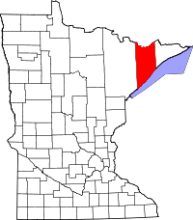Lake County Provides Gap Funding To Keep Project On Track
Lake County has faced a number of challenges since it began deploying its fiber network in 2012. The latest wrinkle comes as the Rural Utility Service (RUS) is late in distributing funds to pay contractors. The agency is administering the stimulus funds used to build the $66 million project. The Lake County News Chronicle recently reported that the County Board of Commissioners will pay $500,000 to cover expenses until federal funds arrive.
The Chronicle reports:
County Administrator Matt Huddleston said the County typically submits financial requirement statements (FRS) to RUS, and the federal agency usually processes the request for funds within 20 days. FRS 15 was filed more than 50 days ago and RUS still hasn't paid the County. A second, more recent FRS has also been delayed.
Commissioners were concerned delayed payments to contractors would further delay the project, scheduled for completion by September 2015.
After the original partner and the County dissolved their partnership and a threat of a lawsuit from Mediacom slowed deployment, Frontier asserted ownership of a number of utility poles within Two Harbors. According to the Chronicle, Lake Connections and the County recently made the decision to bury fiber instead of stringing them on poles as a way to avoid more delays.
Commissioner Rick Goutermont said he was hopeful after speaking to RUS officials on a conference call Monday that RUS would approve the new plan, the project would move forward and RUS would reimburse the $500,000 quickly.
"If we make some kind of movement in the form of some gap financing ... to keep the boots on the ground out there working on it, I believe that would send a stronger message to RUS of our commitment and that we want to move forward," Goutermont said Tuesday.









